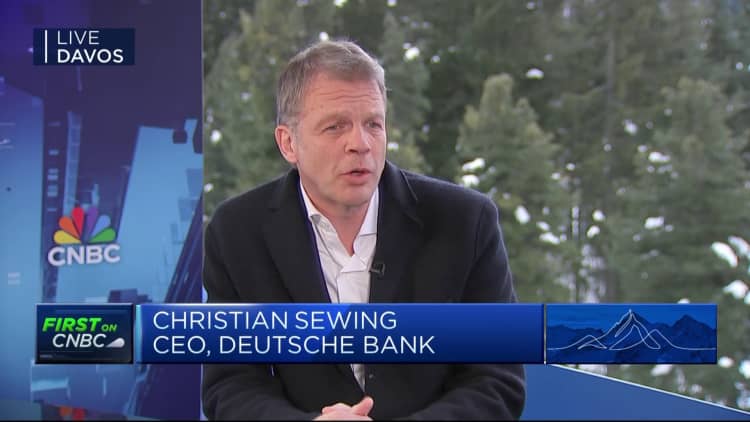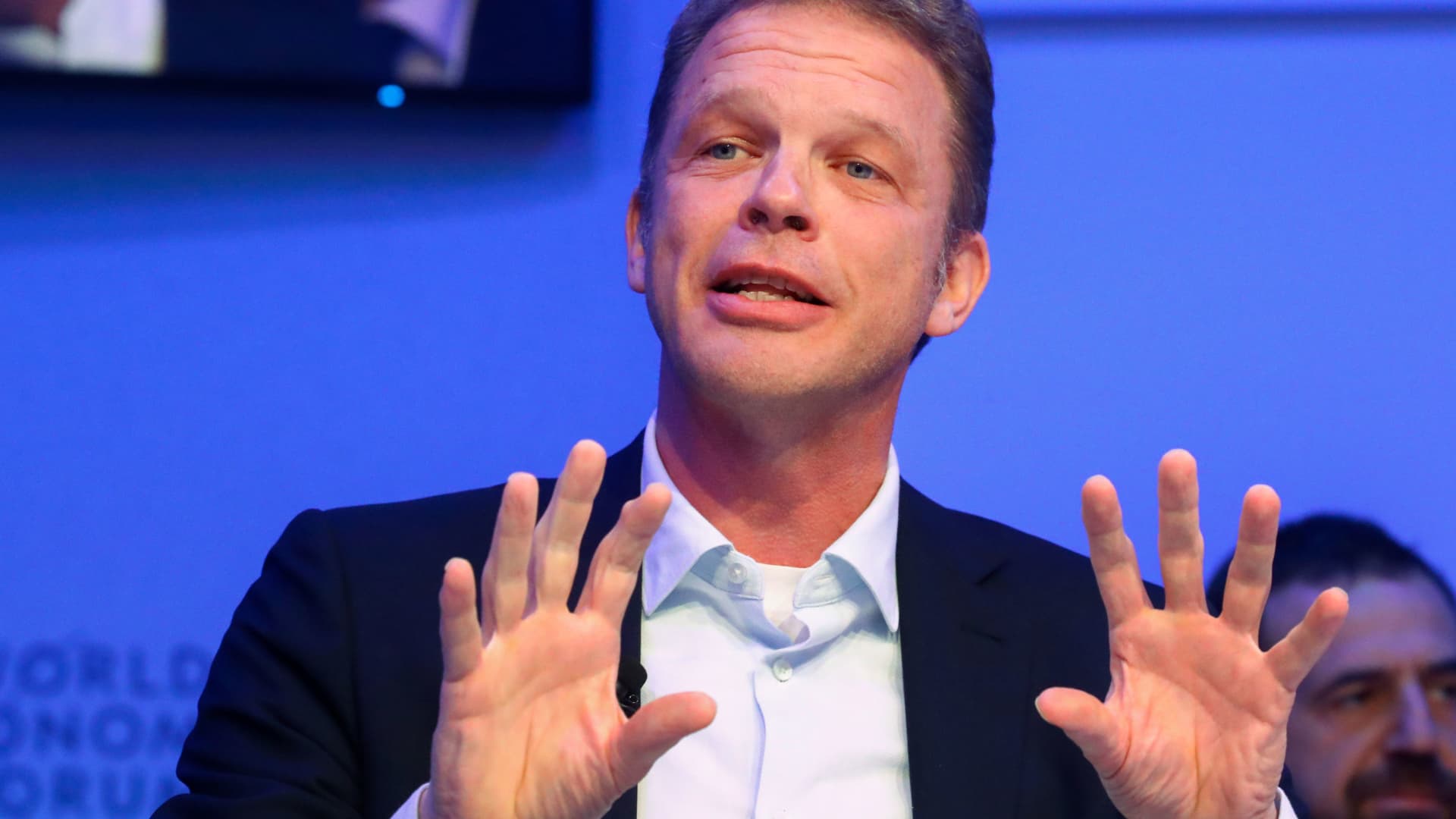Christian Sewing, Chief Executive Officer of Deutsche Bank, has acknowledged that a recession in Germany is inevitable, and urged leaders to accelerate its decoupling from China.
Denis Balibouse | Reuters
Deutsche Bank CEO Christian Sewing on Thursday said that merger and acquisition activity is not a priority for his group, as speculation resurfaces over the future of domestic rival Commerzbank.
The two German lenders abandoned a merger plan in 2019, but concerns about bank profitability, and reports that the German government’s is considering selling some of its company stakes, have rekindled whispers about a possible tie-up in recent weeks.
The state still has a 15% stake in Commerzbank, but Reuters reported earlier this week that Finance Minister Christian Lindner is open to disposing of it.
The merger of Germany’s two biggest banks would create a combined entity with around $2 trillion in assets, although Deutsche Bank’s low valuation could complicate any such move. The bank trades at around 12 euros per share, a fraction of its book value, and a significant portion of assets would need to be marked down.
Speaking to CNBC on the sidelines of the World Economic Forum in Davos, Switzerland on Thursday, Sewing appeared to pour cold water on the rumors, at least for now.
“I wouldn’t say it’s on top of my priority, to be honest. I have always said for years that M&A in the banking industry, particularly in Europe, must come at some time, but most important for that is that certain preconditions are met — preconditions from a regulatory point of view, finalization of the banking union,” Sewing said.
“Obviously, with regard to the sharply increased interest rates, you have to think about fair value gaps given the mortgage books of a lot of banks, so I don’t think it is a priority for this year.”

The European Banking Union was created in 2014 and seeks to ensure the bloc’s banking and financial systems are stable.
In December, Italy’s lower house of parliament voted down reforms to the European Stability Mechanism, the euro zone’s bailout fund, which had been approved by all other euro zone countries.
This left the bloc unable to implement a portion of its banking union legislation described by Eurogroup President Paschal Donohoe as “a key element of our common safety net.”
“Therefore, we are focusing on our own business,” Sewing concluded. “If, in this own business, there are possibilities and options for doing the one or the other smaller add-ons, like we have done with Numis, then obviously we are looking at it.”

